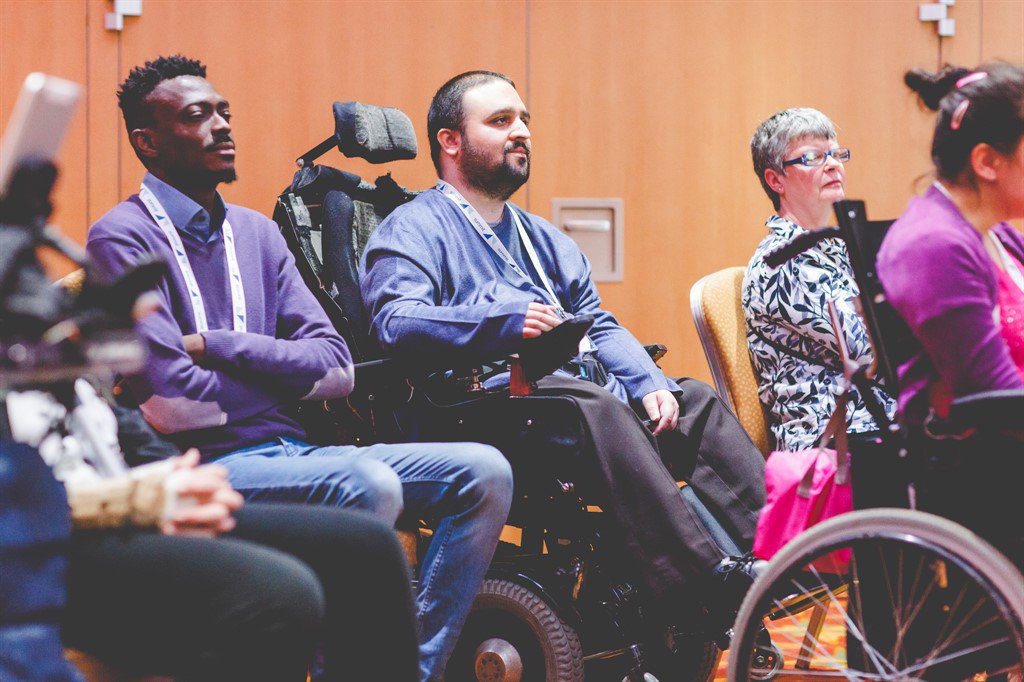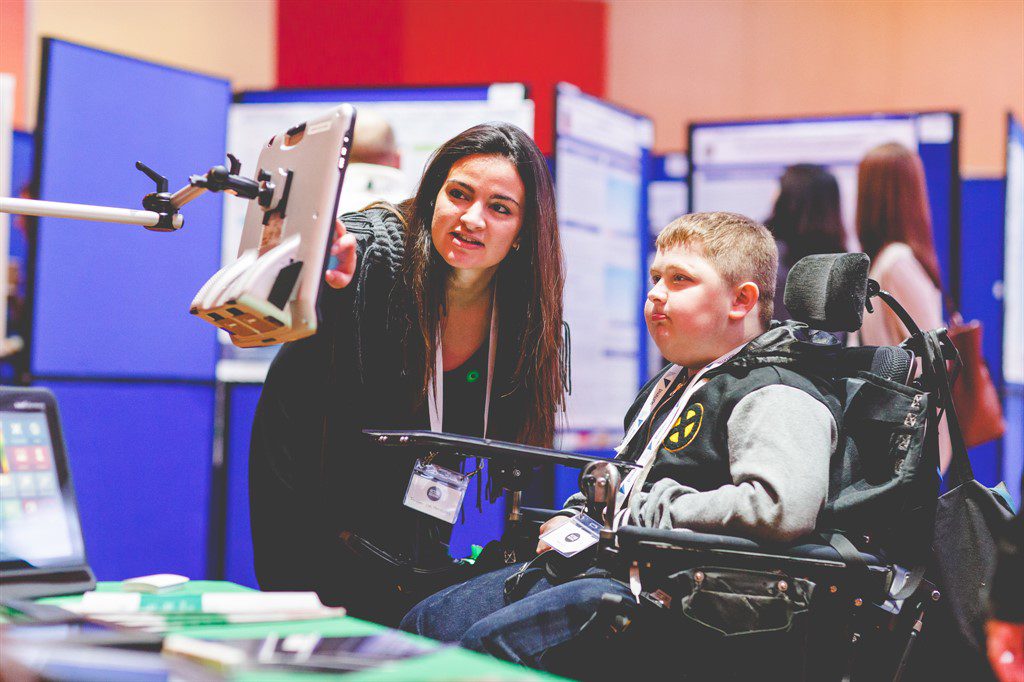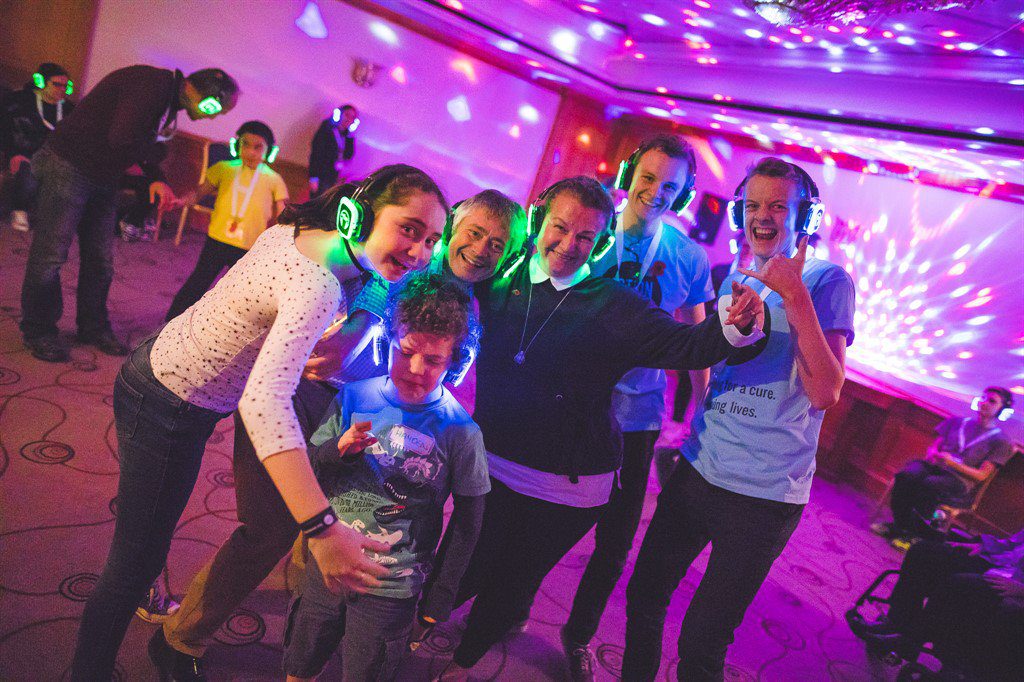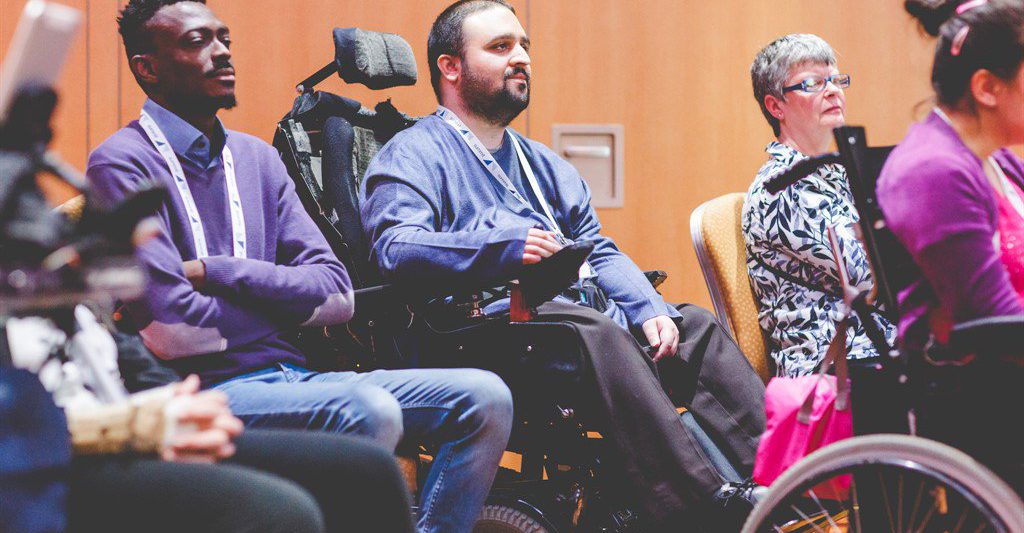(After taking part in the Takin’ Charge project) No one has ever asked me what I want to do before
Young person living with Duchenne
Managing the teenage years can be tricky for anyone. We have always understood the importance of supporting teenagers living with Duchenne and their families through this stage in their life.
How do we do this?
Takin’ Charge
Takin’ Charge was Action Duchenne’s Lottery-funded Transition to Adulthood Project for young people with Duchenne aged 14 – 19 years.
The Takin’ Charge programme provided aspirational information for teenagers and their families about the choices available beyond school, including further education, training and/or employment options, independent living including housing options, the impact of good health care provision including the importance of advice on sexuality, health and relationships.
The project also gave young people with Duchenne the chance to develop friendships and learn new skills such as animation, music and computing, and to gain the confidence to speak up for themselves when talking to their Members of Parliament or organising fundraising events.
We also worked with parents and siblings on parallel support and information sessions ‘Letting go’ and ‘What about us’.
Through the support planning she has done with Zak and our family we have been able to identify some very clear outcomes that will ensure Zak has access to education , training opportunities as well as social interaction.
Vici Richardson (Parent)

Learning and behaviour in Duchenne
There are established behaviour and learning risks in Duchenne.
- See the Standards of Care Treat-NMD guide (page 39) for more information
- Please also see the PPUK Learning and Behaviour Toolkit (please note, that, although the information is still pertinent, the email addresses are likely to have changed since publication)
Jack had a very unsatisfactory EHCP which was very basic and did not plan for Jack’s future. Working with (Action Duchenne) informed not only myself, but also Jack’s SENCO and the LA SEN officer of the importance of ensuring that Jack’s ECHP included details of Jack’s goals of the future and to set short, medium and long term objectives to make sure these goals can be achieved.
Lindsay Maxwell (Parent)

Passive and passive assisted physiotherapy
Marina Di Marco, Principal Neuromuscular Physiotherapist at Queen Elizabeth University Hospital Glasgow, and long-time friend of Action Duchenne has kindly shared some adult physiotherapy resources with us.
The videos feature Marina demonstrating passive and passive assisted movements which she uses to help support her training for carers and family members who help young people and adults with their movements.
Introduction to passive movements
Passive movements for legs
Passive movements for the arms
Young people at the Conference
2017 was the first year we ran a weekend full of sessions specifically for teenagers and their families in the Teenage Zone. It was a huge success, with groups having a go at 3D printing, drama sessions, wheelchair sports and even a silent disco! Look out for this year’s sessions!

Get involved
- Come to ‘The Hang Out’ at the conference
- Call us 020 7250 8240
- Tell us your story


